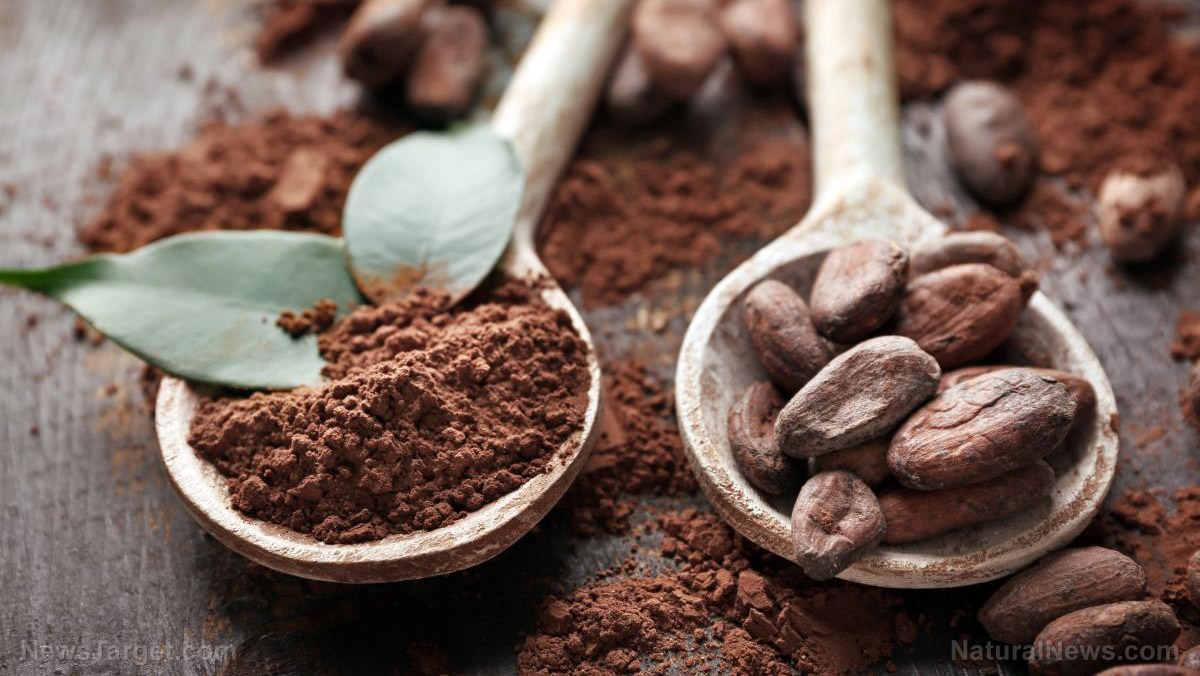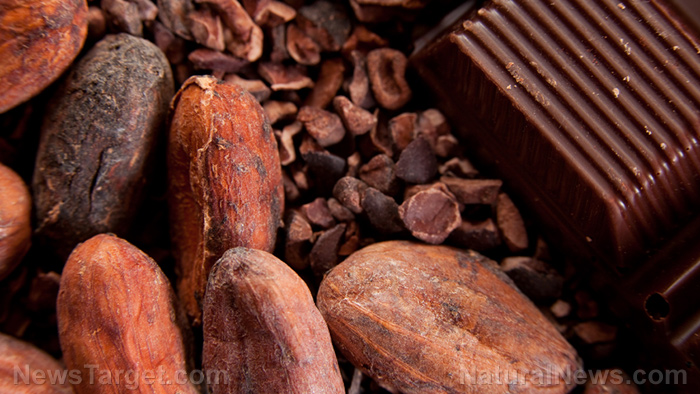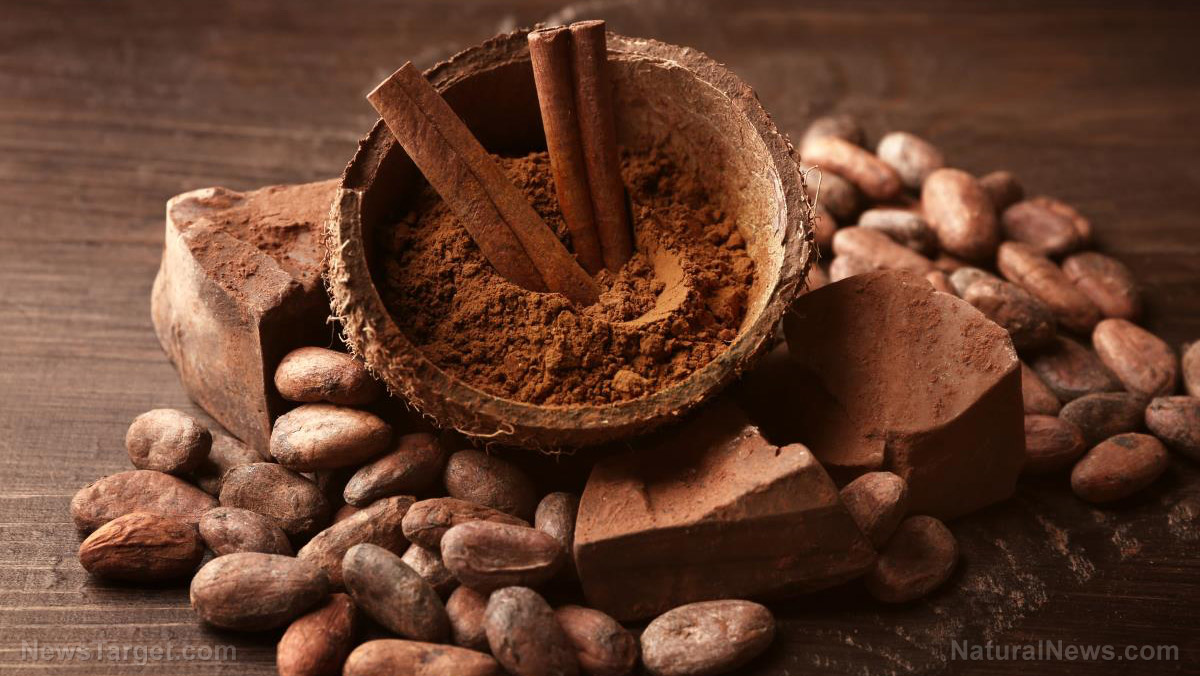Sweet pick-me-up: Dark chocolate is a treat that fights fatigue
08/14/2019 / By Janine Acero

Consuming large quantities of sweets every day is a sure way to secure a spot in the doctor’s office. Sweet things like chocolate can cause a “sugar rush,” which sounds harmless but is anything but. Sugar rush pertains to a rapid rise in blood sugar that wears off after a while. When blood sugar consequently drops below normal levels, it results in fatigue. Research suggests that dark chocolate or cocoa, the healthier counterpart of sweetened or milk chocolate, helps relieve fatigue – especially in people with multiple sclerosis.
The chronic condition called multiple sclerosis (MS) causes extreme fatigue that can be debilitating. It can also affect a person’s ability to perform daily tasks. According to the National Multiple Sclerosis Society, fatigue occurs in 80 percent of people with MS and is the most prominent symptom displayed by a person “who otherwise has minimal activity limitations.”
In a new study published in the Journal of Neurology, Neurosurgery, and Psychiatry, researchers reported that cocoa can treat MS-related fatigue. They believe that their findings — although not definitive proof — demonstrate how simple dietary changes can lead to positive results and help MS patients deal with their symptoms.
Keep your drink warm and your chocolate dark
As mentioned, uncontrolled chocolate consumption can lead to serious health issues, but it’s a different story when it comes to dark chocolate, which is the least-processed version of this popular treat. Minimal processing means that the product still has most of its health-promoting properties, some of which are from plant pigments called flavonoids.
Flavonoids are plant compounds that have been extensively studied for their anti-cancer, neuroprotective, and anti-inflammatory benefits. In the current study, researchers from the U.K. investigated how the flavonoids in cocoa affect fatigue in people with MS.
In the study, a group of MS patients drank flavonoid-rich cocoa every day for six weeks, while another group consumed low-flavonoid cocoa drinks.
After six weeks, the MS patients who drank flavonoid-rich cocoa showed a 45 percent improvement in their alertness and levels of fatigue. They also showed an 80 percent increase in their walking speed. Furthermore, the group experienced less pain, which is another symptom of MS.
Based on these promising results, the researchers concluded that dietary approaches are easy, safe, and cost-effective ways of reducing fatigue and other symptoms in MS patients, as well as improving their quality of life.
This study isn’t the first to investigate the fatigue-reducing benefits of cocoa. Previous studies have also shown that cocoa can improve the symptoms of people with chronic fatigue syndrome. Other benefits offered by cocoa include improved mental health, overall function, and energy levels, as well as enhanced exercise capacity.
Fatigue: causes and related conditions
Fatigue is not simply feeling tired. It’s normal to feel tired after expending energy for a task, but fatigue is marked by constant, unrelenting exhaustion despite relatively minimal activity.
Fatigue can be caused by many things, such as lack of exercise, depression, and underlying health conditions. If you’re experiencing fatigue, it’s time to reflect on some habits and routines that may be contributing to your condition. These could be:
- Use of alcohol or drugs
- Insufficient physical activity
- Excess physical activity
- Lack of sleep
- Jet lag disorder
- Medications (e.g. antihistamine, cough medicine)
- Unhealthy diet
Fatigue can also be a sign of a health problem, such as:
- Acute liver failure
- Anemia
- Anxiety disorders
- Cancer
- Chronic fatigue syndrome
- Chronic infection or inflammation
- Chronic kidney disease
- COPD
- Depression
- Diabetes
- Emphysema
- Fibromyalgia
- Heart disease
- Hyperthyroidism (overactive thyroid)
- Hypothyroidism (underactive thyroid)
- IBD
- Medications and treatments (e.g. chemotherapy, radiation therapy, painkillers, antidepressants)
- Sleep apnea
- Stress
- Traumatic brain injury
The next time you feel fatigued, it may be a good idea to whip up a steaming cup of cocoa – just make sure it is a dark chocolate variety. Visit Food.news to learn more about flavonoid-rich foods that can help with fatigue.
Sources include:
Submit a correction >>
Tagged Under:
alternative medicine, anti-inflammatory, blood sugar, brain health, Chocolate, chronic disease, clean food, cocoa, dark chocolate, disease treatments, exhaustion, fatigue, flavonoids, food cures, food is medicine, functional food, multiple sclerosis, natural cures, natural medicine, nervous system, neuroprotective, pain relief, phytonutrients, prevention, remedies, sugar rush, sweets
This article may contain statements that reflect the opinion of the author
RECENT NEWS & ARTICLES
COPYRIGHT © 2017 CACAO NEWS



















